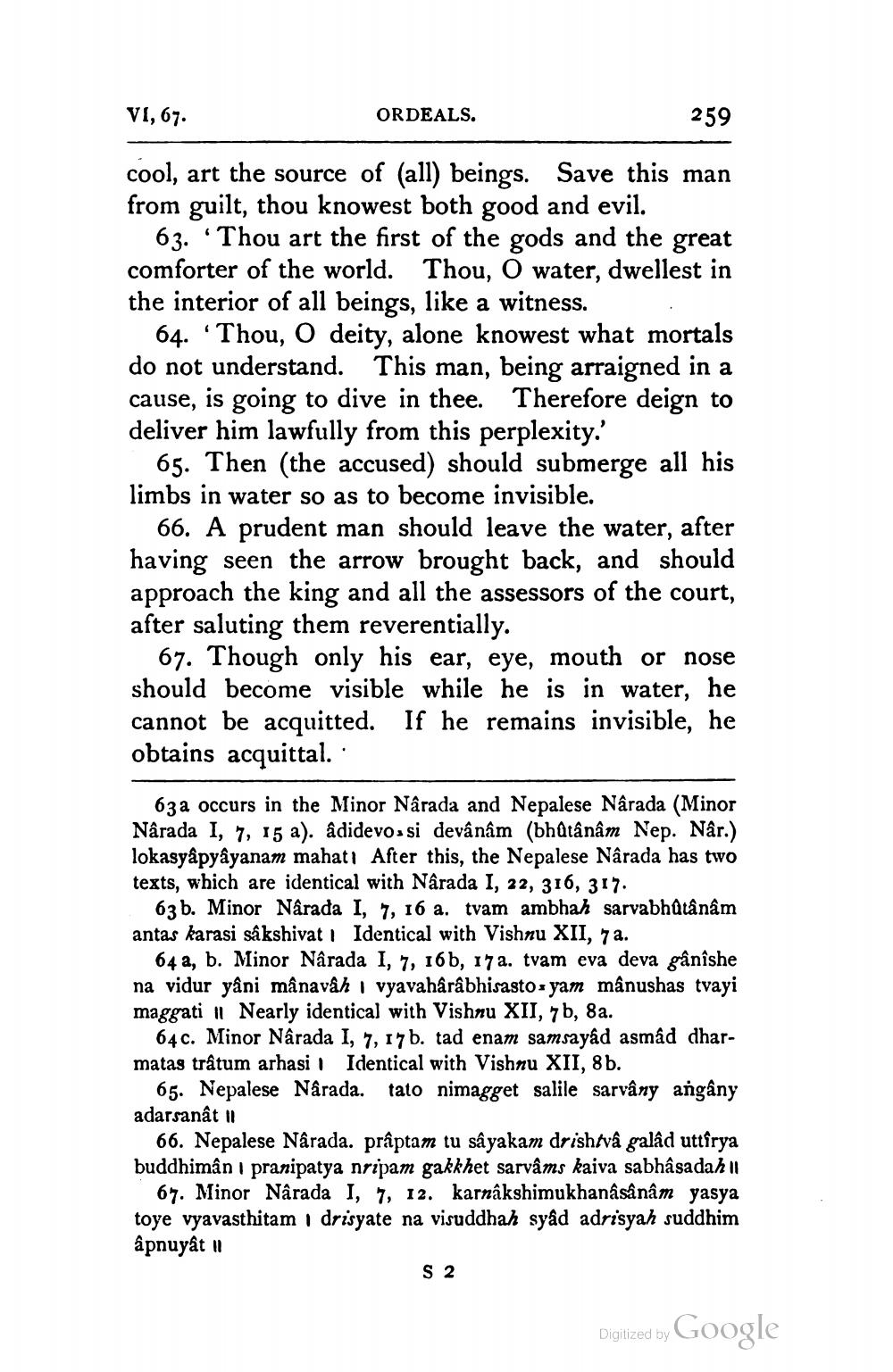________________
VI, 67.
cool, art the source of (all) beings. Save this man from guilt, thou knowest both good and evil.
"
63. Thou art the first of the gods and the great comforter of the world. Thou, O water, dwellest in the interior of all beings, like a witness.
64. Thou, O deity, alone knowest what mortals do not understand. This man, being arraigned in a cause, is going to dive in thee. Therefore deign to deliver him lawfully from this perplexity.'
65. Then (the accused) should submerge all his limbs in water so as to become invisible.
ORDEALS.
259
66. A prudent man should leave the water, after having seen the arrow brought back, and should approach the king and all the assessors of the court, after saluting them reverentially.
67. Though only his ear, eye, mouth or nose should become visible while he is in water, he cannot be acquitted. If he remains invisible, he obtains acquittal.
63a occurs in the Minor Nârada and Nepalese Nârada (Minor Nârada I, 7, 15 a). âdidevo si devânâm (bhûtânâm Nep. Nâr.) lokasyâpyâyanam mahatı After this, the Nepalese Nârada has two texts, which are identical with Nârada I, 22, 316, 317.
63 b. Minor Nârada I, 7, 16 a. tvam ambhah sarvabhûtânâm antas karasi sâkshivat Identical with Vishnu XII, 7a.
64 a, b. Minor Nârada I, 7, 16b, 17a. tvam eva deva gânîshe na vidur yâni mânavâh vyavahârâbhisasto yam mânushas tvayi maggati Nearly identical with Vishnu XII, 7b, 8a.
64 c. Minor Nârada I, 7, 17 b. tad enam samsayâd asmâd dharmatas trâtum arhasi Identical with Vishnu XII, 8b.
65. Nepalese Nârada. tato nimagget salile sarvâny angâny
adarsanât II
66. Nepalese Nârada. prâptam tu sâyakam drishtvâ galâd uttîrya buddhimâni pranipatya nripam gakkhet sarvâms kaiva sabhâsadah || 67. Minor Nârada I, 7, 12. karnâkshimukhanâsânâm yasya toye vyavasthitam drisyate na visuddhah syâd adrisyah suddhim âpnuyật II
S 2
Digitized by Google




